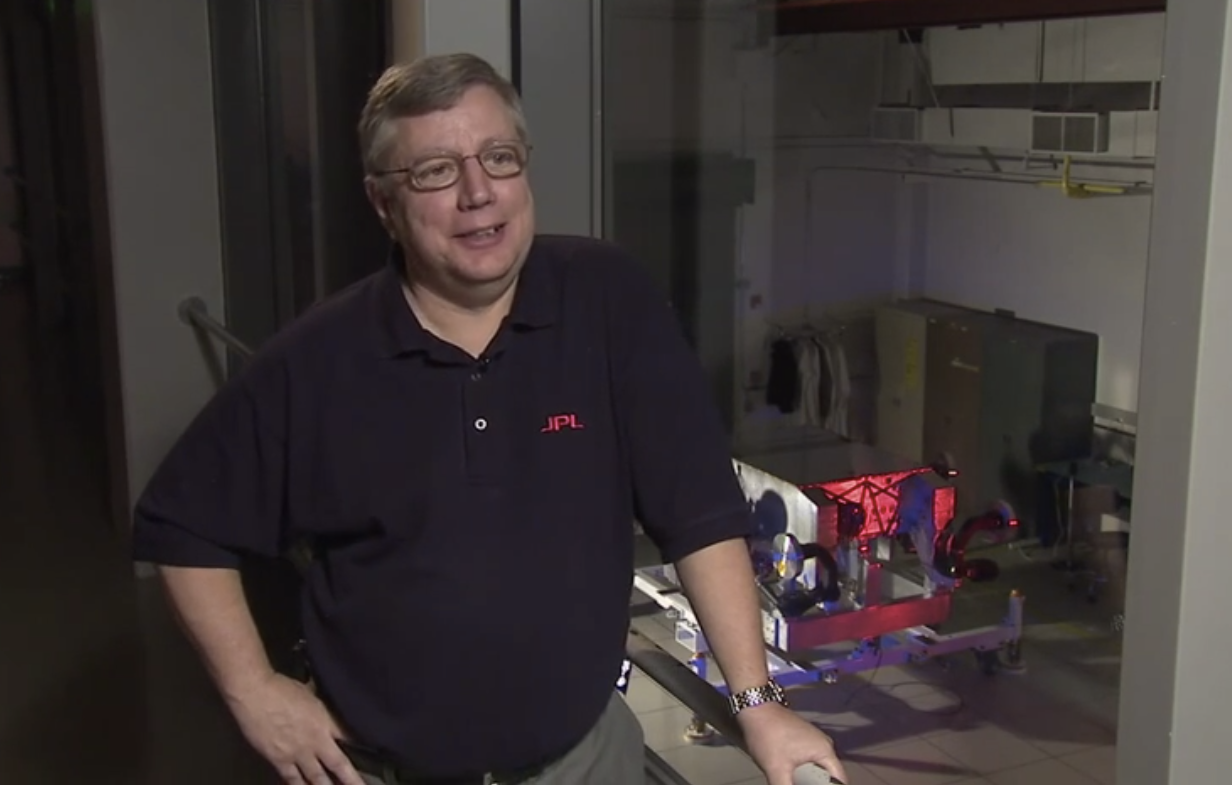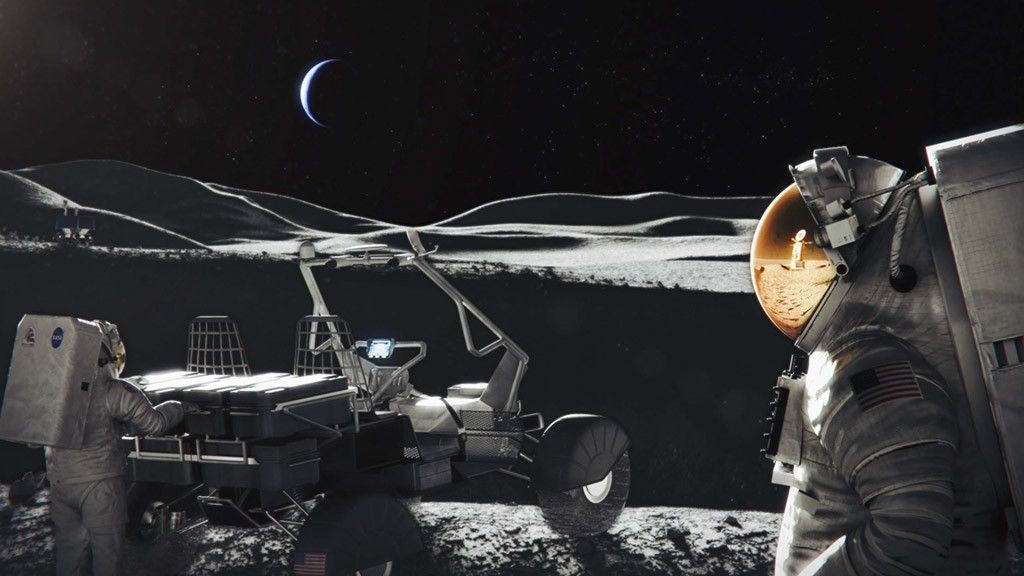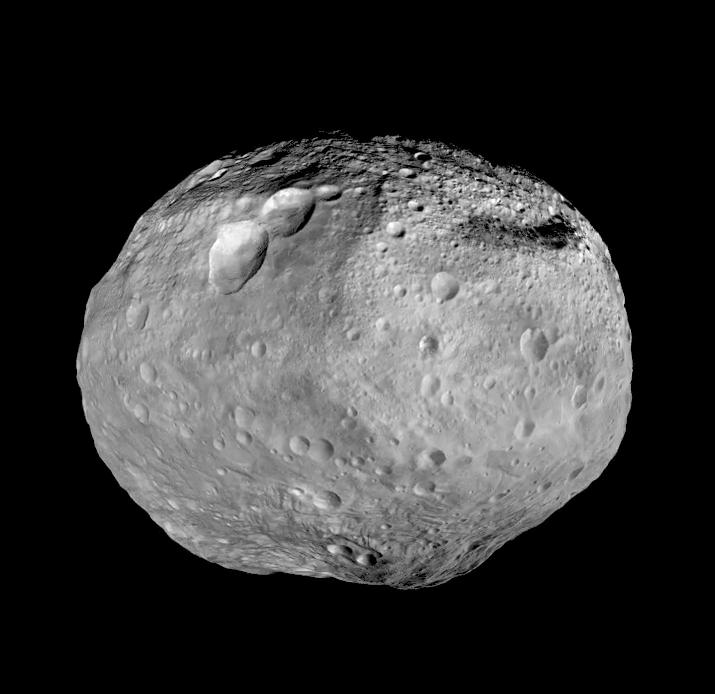
Bob Anderson
Geologist - Jet Propulsion Laboratory
Contents
- Education
- Where are you from?
- Describe the first time you made a personal connection with outer space.
- How did you end up working in the space program?
- Who inspired you?
- What is a Geologist?
- Tell us about a favorite moment so far in your career?
- What advice would you give to someone who wants to take the same career path as you?
- What do you do for fun?
- If you were talking to a student interested in science and math or engineering, what advice would you give them?
- Read More
- Where are they from?
Education
Warwick High School, Newport News, VA
Old Dominion University
Bachelor of Science-Geology
Old Dominion University
Masters of Science
University of Pittsburgh
PhD-Geology
Where are you from?
Since the age of 10, I have lived in Newport News, Va. I consider Newport News my hometown. I was born in Anchorage, Alaska.
Describe the first time you made a personal connection with outer space.
I grew up with the manned space program. The Mercury manned program was my beginning point. I really wanted to walk on the Moon.
How did you end up working in the space program?
When I was in school I never liked to be sitting behind a desk. I always liked to be outside. So when I went to college I had to find something I could do to be outside. Well, geology was really cool to me, because I could go out into the field, look at the outcrop and try to figure out what was going on there.
Twelve years ago I was working with Mars Pathfinder, and I thought, “Man, I really like working with robots. This is cool!” I was fortunate enough to go from the Pathfinder mission to the Mars Exploration Rovers (MER) Spirit and Opportunity missions. Now, I work on the Mars Science Laboratory (MSL, or the Curiosity rover). My job on MSL is to be the interface between the robotic arm and instruments on the robotic arm and the instruments that are onboard inside MSL. Once MSL lands on Mars, we are going to drill into a Martian rock and take samples of the powder from the rock. Then we will put it into two onboard instruments on the spacecraft. My job is to make sure the powder gets to these instruments properly.
Being an investigation scientist on a mission is a very challenging job. When a scientist goes through college, by the time he/she gets their Ph.D., they are usually focused on one specific field or topic. But for a Jet Propulsion Laboratory (JPL) investigation scientist, we are the interface between the engineers who build the spacecraft and the scientist who wants their instrument data for their individual research. This means we have to know all aspects of the hardware, software, operations, and the science. I would compare it to being a baseball umpire in a game where the players on each team speak different languages.
Who inspired you?
The first person to inspire me with regard to science was my 10th grade science teacher Mr. Rowe (Newport News High School, 1970).
What is a Geologist?
Here at JPL we work with unmanned spacecraft. I am a scientist in support of missions we have that are exploring Mars. I work helping engineers that are planning missions to understand the different instruments we will use on Mars, including robotics and geologic instruments. My job as a geologist is to go out in the testing field early and find the appropriate spot to test the rover, make sure the data gets back to the scientists and actually train the rest of our science team how to be robotic geologists. Right now my research interests lie in unraveling the geologic history of Mars with an emphasis on understanding the tectonic, structural and paleohydrologic evolution of the Tharsis region on Mars.
Tell us about a favorite moment so far in your career?
The Mars Pathfinder mission’s launch and landing. This was my first space mission that I had done a lot of work for.
What advice would you give to someone who wants to take the same career path as you?
When I was growing up, I would really say that I was the Bart Simpson of the 1970s. I was pretty lazy and I really liked to have fun. I wasn’t the best student. However, now, if someone comes up to me at JPL and asks me to deliver something, that person doesn’t have to ask me twice. I deliver whatever is needed. My work ethic has always covered me. Even if you are like me and maybe not the best student, you will find that intelligence will take you a long way, but a strong work ethic will take you a lot farther.
What do you do for fun?
As I get older, I have found out the word “fun” has changed. In my early days I loved to play basketball and golf. But at my age, I enjoy spending most of my time with my daughter—watching her grow—and working in my yard.
If you were talking to a student interested in science and math or engineering, what advice would you give them?
First, I would ask them why they like science or math. Working in this field is a commitment. You must love what you are doing because it will take a lot of hard work and time. If you do decide to go into this field, don’t let anyone talk you out of it. I had several people tell me that I did not have what it took to get to the top. But I have always had confidence in myself and strove to prove them wrong. As a scientist, you are only as good as the notes you take and keep in your notebook. In fact, in the old days, the surveyors and geologists’ notebooks were actually like legal documents. Nowadays with laptops you can take computers out in the field, but the most important thing is to take good notes when observing the world around you.
Read More
Mars Exploration Program Homepage
Watch Video: Our Solar System Through the Eyes of Scientists — Meet Bob Anderson
Where are they from?
Planetary science is a global profession.





























